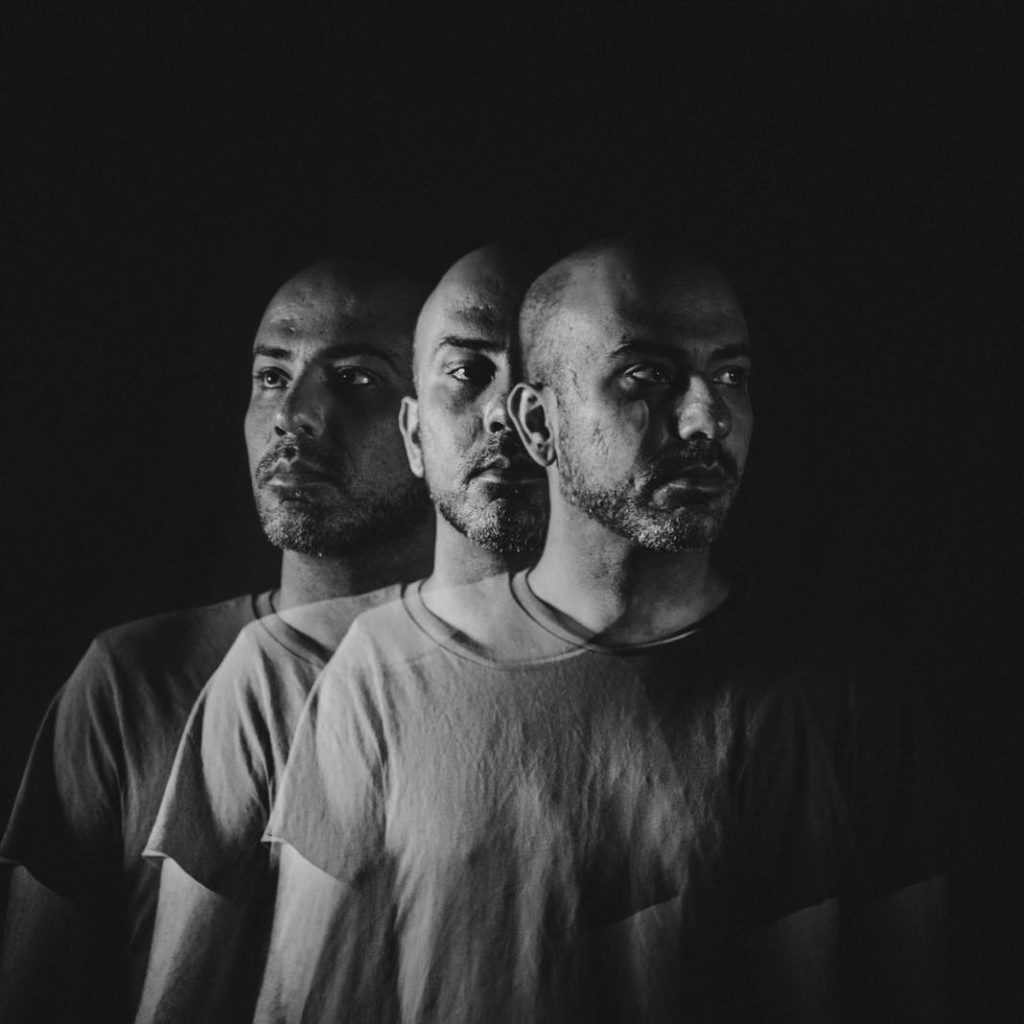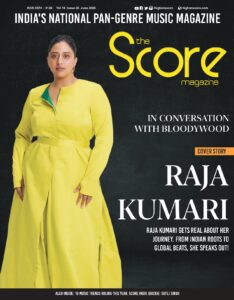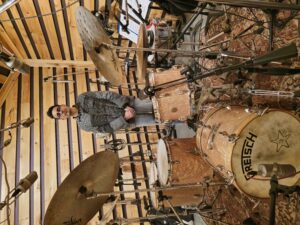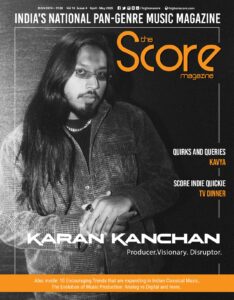Even though he is most known as a pioneer of progressive metal in India, Keshav Dhar is a man with his finger in many pies. Having created the avant-garde prog anthem maker Skyharbor out of his bedroom, he established his excellence early on in the scene.
Subsequently, he has gone on to make music with Marty Friedman (yes, THAT Marty Friedman), produce and mix for a multitude of Indian and international musicians and even tiptoe into composing for Bollywood.
The musical polymath caught up with us to talk about navigating the lockdown, composing with Clinton Cerejo, albums he would recommend to aliens and his 10 Commandments of making good music.
What was it like, co-writing music with Marty Friedman?
It was very intimidating at first, till I realised (and he emphasised) that he literally wanted me to do my thing the way I would write a song of my own. Being a producer, when I work with other people I tend to go into my “how can I get into this person’s head and think like them” mode, but he made me feel really very comfortable.
It made sense, because there really wouldn’t be any reason for someone like him, who could literally pick anyone from the world to work with, to approach someone like me unless he really wanted my specific sound.
Tell us about your most fascinating collaborations till date.
Fascinating is a subjective term, but I really feel like Vishal J. Singh’s guest appearance on the Skyharbor song ‘Celestial’ was by far the most ear-to-ear smile-inducing collaborative moment I’ve had yet. That guitar solo was pure magic. To me, it really is one of those once-in-a-blue-moon performances where every note is exquisite.
How does one transition from face-melting Skyharbor solos to composing for Bollywood films?
This may sound surprising, but Skyharbor was really the reason for me getting a foot in the door in the film scoring world. As was the case with Marty Friedman, there really wasn’t any reason why the prominent composers who work in film here, who have their pick of people to collaborate with, would want me to get involved with film scores unless they specifically wanted my sensibilities on their project.
In a way, it actually makes sense, because one of the things I’ve heard a lot about my music is that there’s a very cinematic element to it, a ‘visual’ feel to the music, so to speak. So for me, the transition from composing music for music’s sake to composing to picture was a very seamless one.
All it really took was to learn the ropes and techniques specific to film scoring, which I’m still learning with each new project. In terms of a shift in mindset, not so much. In fact, I’ve been told often that a lot of both my bands’ songs could easily fit into films.

What do you look for in a “good song”?
Something memorable, something that makes me want to rewind and press play again once the song ends. Above all, I need to feel something. People might think the opposite of a good song is a bad song, but to me the opposite of a good song is a boring song.
If a song makes me groove, I like it. If it makes me laugh, I like it. If I think it’s awful, I’ll still appreciate it more than a song that just passes me by and makes me feel nothing. There can be technically stunning music that bores me to death.
A large section of Skyhabor’s fans found the band via the internet. But then again, streaming and piracy have bitten into artists’ incomes. As someone who has been part of the phenomenon, do you see a viable solution to the dilemma?
This is not something that people want to hear, but honest to God I cannot stress enough how important it is to NOT have financial expectations from selling your albums or your singles, at least for the first 5-6 years minimum, maybe even more.
You are in all likelihood only going to set yourself up for disappointment and end up quitting. To put it bluntly, there is no way we can control peoples’ tastes. There are tons of factors that need to be in place to have a glimmer of a chance of making money from record sales, and none of those factors are in our control except making the best possible music we can which makes us happy.
If it happens to connect with people, awesome. Make more of it. Maybe it will connect with enough people that some may want to even put money behind it. But be real.
Almost all of our favourite artists didn’t really start making any substantial bucks from music until their third or fourth albums, maybe even later. A lot of them slept on floors through their 20s.
Manage your expectations. Music in and of itself has been devalued severely over the past two decades because the way music is consumed now has changed forever – but at the same time there are tons more alternative ways to make money from music other than just trying to sell records.
Instead of trying to make money from your albums, think of ways to exploit your recordings in other ways that can generate other financial opportunities for you.

Look into publishing, look into sync opportunities, look into merch and branding, look into performing, any other avenue where your music can become attached to a product that actually generates money.
There are plenty of people who will scoff at this and would rather spend their time complaining about how they’re the only ones fighting a losing battle and how they’re the only ones that respect music because they buy CDs, but the truth is that the world of music has changed, and we need to change with it.
Any artists that have caught your eye recently? Who should we be looking at as the next big thing?
I’ve been absolutely obsessed with Emilie Nicolas and her last two albums, especially Tranquille Emile – she’s probably a bit too left-field to be the next big thing, but dear god, that music is so inspiring! Highly recommended.
How do you find new ideas for your music? Books, movies, art…?
I wouldn’t say books, but definitely films! I also really like to pick apart and analyse productions from totally different genres and soundtracks. Sometimes I’ll lift certain ideas and motifs and warp them in my own way till they become something totally different but ‘mine’.
What, according to you, is the primary difference in the mindset of a composer and a producer, especially when they are different sides to the same person?
A composer’s output is largely just an idea or a thought, whereas a producer’s output is actualising that thought or idea into a listenable form of a recording. Neither can exist in a consumable form without the other, although the composition always comes first.
Composers don’t need to be producers or vice versa, but when they do happen to be the same person I think it’s actually easier. Because when you hear an idea in your head, and you have some skill in production, you are alreay hearing it in a certain form, certain style, or with a certain sound.
And then it’s just a matter of picking the right tools and using your technical skill and creativity to translate that idea into listenable, recorded form.
If you had to pick three albums to introduce humanity to an alien civilization, what would they be?
Jakob – Solace (for serenity, beauty, desolation, emotion, bleakness, all the vivid cinematic things)
Billie Eilish – When We All Fall Asleep, Where Do We Go? (for literal perfection in songwriting)
Meshuggah – Catch Thirtythree (for the soundtrack to your worst nightmare)
Having been in the “indie scene” for ages now, what’s your take on the evolution of the landscape? What, according to you, is the good and the bad of Indian independent music?
I think it’s mostly just good. The scene has just blossomed into something that I could never have imagined ten years ago. The level of songwriting, production, and effort that some of the top musicians and artists are putting into their products is nothing short of world class, and a lot of Indian indie artists can wipe the floor with any international act, which wasn’t necessarily the case ten years ago with the exception of a dozen or so artists.
I really have no complaints about it, and I’m privileged to be part of it. I try my best to keep my finger on the pulse of what’s current and what the younger crop of producers and songwriters are doing, and so much of it is mind blowingly good. Technology and accessibility have also transformed massively, which can only be a good thing.
Can you take us through your studio? What gear do you swear by for your day to day operations?
My studio at the moment is my “living” room, haha. I’ve never really been a fan of ‘gear’ for the sake of collecting gear, and all my equipment is strictly functional. Very little of my hardware is ‘luxury’ items. Lame answer, but the three things I just couldn’t possibly live without for my day to day are my MacBook Pro, my Dynaudio LYD48 reference speakers and Audio Technica ATH-M50 headphones.
What are Keshav Dhar’s 10 Commandments for Making Good Music?
- Be humble.
- Learn an instrument. Preferably two. More if you can.
- Learn to record yourself.
- Back up your projects on at least two hard drives Every. Single. Day.
- Listen to lots and lots of different music. Don’t be a snob. Keep an open mind.
- If you can, play with other people. There is magic that happens when two or more people make music together that just cannot happen when one is by oneself.
- Surround yourself with musicians better than yourself.
- Practice, practice, practice.
- Don’t spend all your time working on music and not having a life outside of it. Your music will likely end up boring. Interesting people have interesting experiences and come up with interesting ideas.
- Be humble.
Do Follow :
Instagram – https://www.instagram.com/keshavdhar/?hl=en







